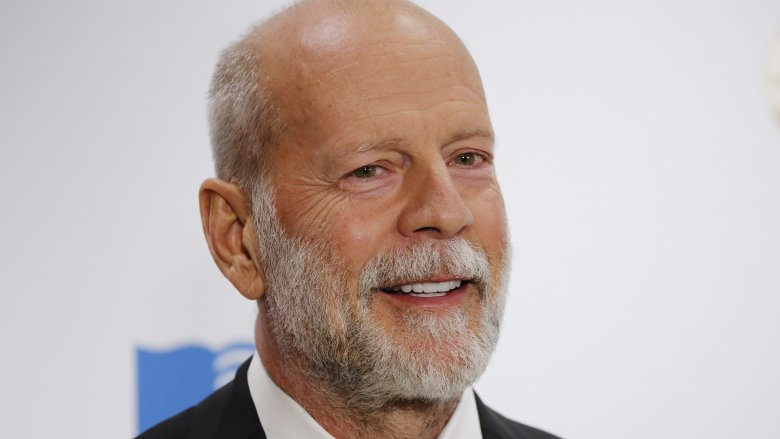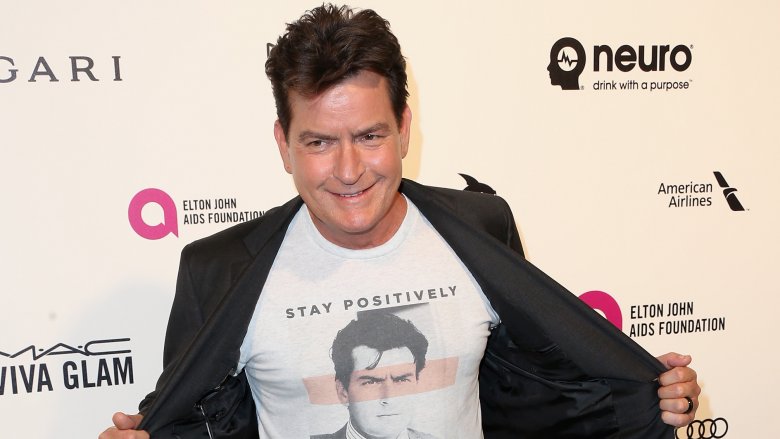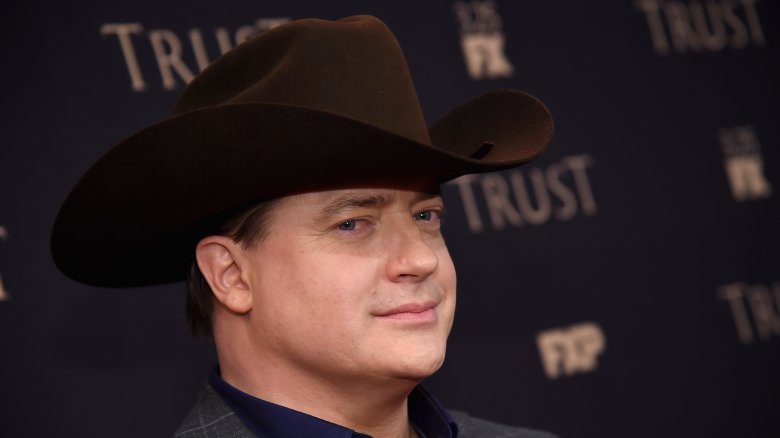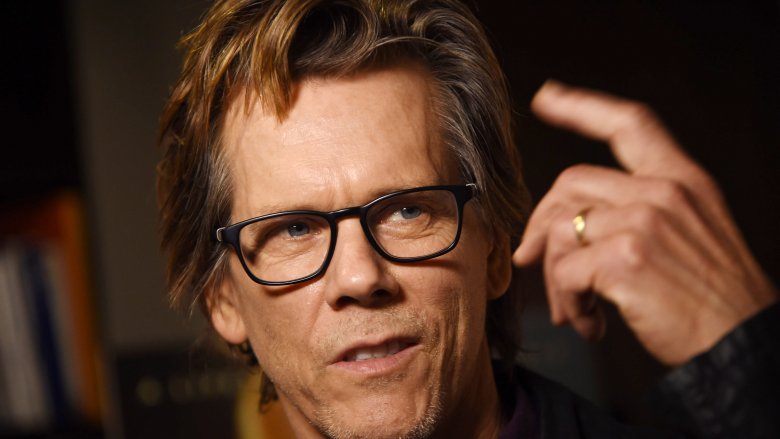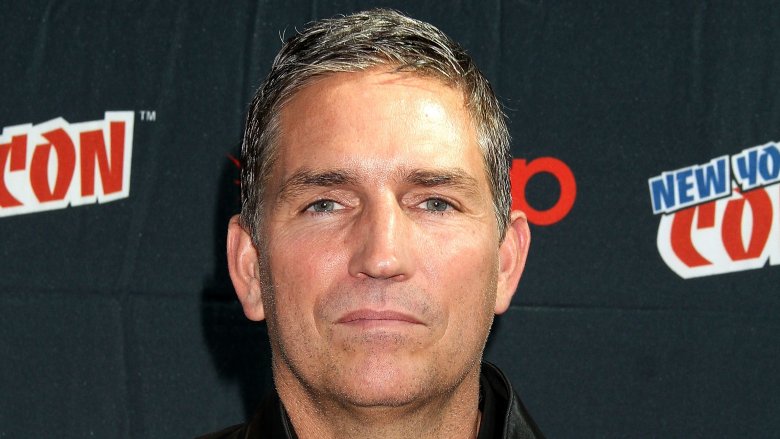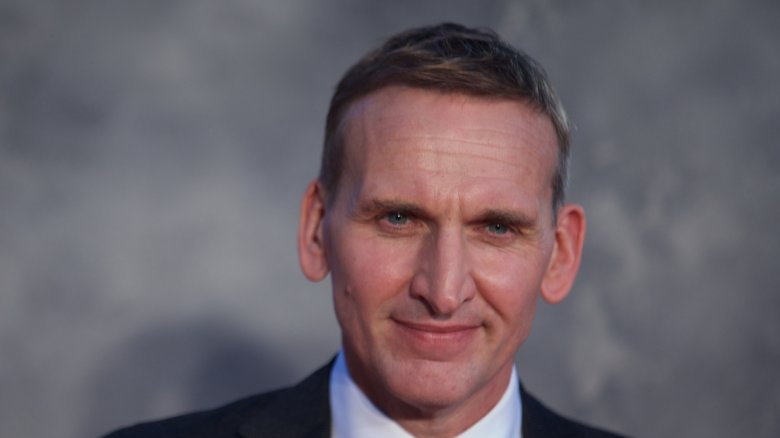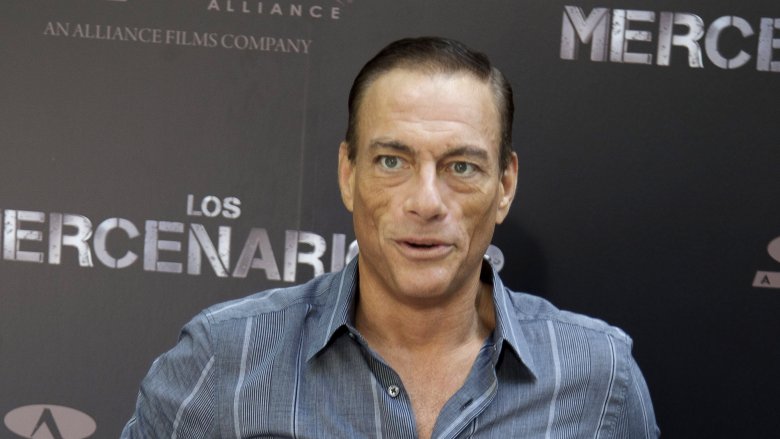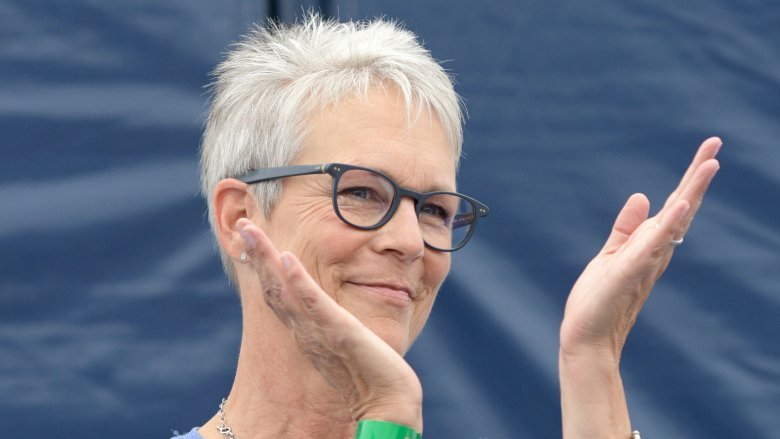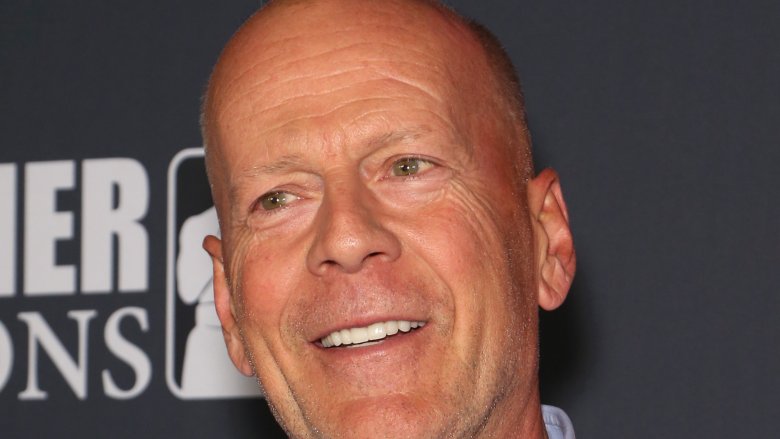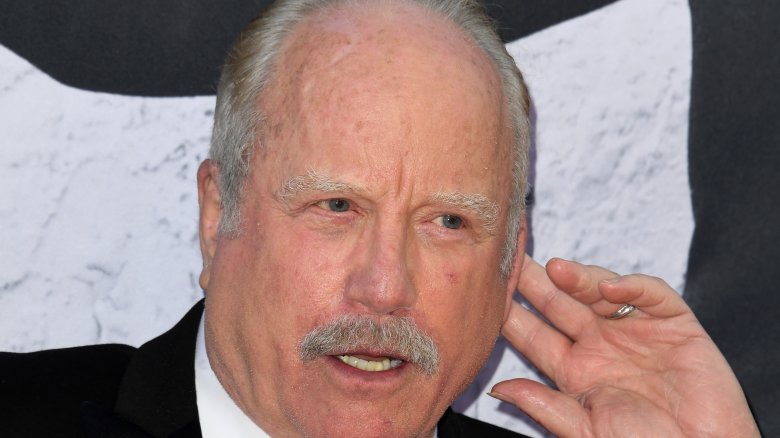Actors Who Took Bad Roles Out Of Desperation
Few actors are safe from bad roles in bad films. They're always out there, waiting, lurking, seeking their next unsuspecting victim. Despite how common stinkers are in the movie industry, they still have a great impact on fans — and on the careers of the actors that make them happen. Stars are made to wear these bad roles like albatrosses around their necks, forever reminded of their past slip-ups. But not all bad roles are the result of bad judgement. Believe it or not, some stars were not oblivious to the role's quality when they accepted it — some had no other choice. They simply took what they could get.
Desperation makes people do things they normally wouldn't. And actors, sometimes even the very best of them, get desperate too. Stripped of the luxury of time and/or alternatives, these stars were forced to appear in films they didn't love. Some set aside their beliefs and personal philosophies for work, whereas others set aside their pride and took roles that were beneath them. Each of these actors found themselves feeling desperate for different reasons, but they all ended up at the same spot.
Here are some actors who took bad roles out of desperation.
A convenient truther
In 2006, Charlie Sheen first made noise as a 9/11 truther, criticizing the investigative efforts of the World Trade Center towers collapsing. Soon afterward, on Alex Jones' radio show, a pre-public meltdown Sheen detailed his concerns surrounding September 11, 2001. "It seems to me like 19 amateurs with box cutters taking over four commercial airliners and hitting 75 percent of the targets — that feels like a conspiracy theory," he said on the show (via Daily News). For years afterward, Sheen continued expressing these feelings whenever probed on the topic.
That is why fans were shocked to hear that Sheen, a vocal 9/11 truther, was cast as one of the leads in the 2017 film, 9/11. Speaking to The Hollywood Reporter, Sheen made the role sound like a stepping stone for something bigger, saying "The younger generation doesn't know a lot of my work before the comedy, so they can get a sense there is another gear there.... There is so much good product out there that I have to believe there is going to be room for me in something in the future." It's possible, however, that in Sheen's haste to restore his dramatic acting career, he chose a bad role. Panned by critics and earning less than $200,000 at the box office, 9/11 was an unmitigated disaster. With critics calling the film offensive for using the Twin Towers as "a ticking-time-bomb device," Sheen, seeking a shortcut to drama, seems to have found the long way around.
A furry situation
Brendan Fraser was never a critical darling, but he made an impression in the film industry. In the early '90s, it seemed like he was in everything. By 1999, he was the face of The Mummy franchise. Despite his career trajectory and the odd successful film, however, Fraser's next decade was checkered with critical and box office failures. Films like Monkeybone, Looney Tunes: Back in Action and Inkheart bombed, and, by the time the gravy train named The Mummy stopped in 2008, Fraser's name no longer carried the same weight it once did.
For Fraser, the quality roles drying up seemed connected to the complaint he filed against Philip Berk, former president of the Hollywood Foreign Press Association, for pinching his behind in 2003. "The phone does stop ringing in your career, and you start asking yourself why," he said in an interview with GQ. "There's many reasons, but was this one of them? I think it was."
With Fraser's work "withered on the vine," the choices that remained were of questionable quality, so he accepted bad role after bad role. First, there was Furry Vengeance, a film universally lambasted by critics. In the DVD commentary, the director, Roger Kumble even says to Fraser (via AV Club), "I remember you locked yourself in the car and called your agents to try and get off the picture." The years after Furry Vengeance weren't any easier. Fraser saw his choices seemingly confined to either straight-to-DVD films like HairBrained or films that never got made like The Legend of William Tell: 3D.
Top of the world to underground worms
Kevin Bacon may be a model of career longevity in Hollywood these days, but it wasn't always easy for the star to stay positive. After the 1984 smash hit, Footloose, Bacon began what he described in an interview with The Telegraph as "a long, slow, steady decline." While many fans see that iconic dancing role as the launching pad for Bacon's long and enduring career, he sees it differently. "You can't really say my career started to take off after Footloose," he said. "Because it didn't. My career started going down the toilet."
In the years following Footloose, Bacon was the star in several major box office flops, including Quicksilver, She's Having a Baby and Criminal Law. These failures led Bacon to some serious doubts about his career, but he struggled on, taking whatever roles he could get. After accepting a role in Tremors, Bacon admits to breaking down one afternoon, falling to the ground and crying to his wife, "I can't believe I'm doing a movie about underground worms!" But those worms helped. Though the film only saw modest success in the theaters, the humor and throwback quality of Tremors helped spur it on to become a major cult classic.
Crucified by the industry
Prior to his casting in The Passion of the Christ, Jim Caviezel was considered a rising star. His performances in Thin Red Line, Frequency and The Count of Monte Cristo demonstrated that he was destined for greatness. But, according to the actor, The Passion of the Christ, changed everything. "I was rejected in my own industry," he said while speaking about the film. The Passion of the Christ, though enormously successful at the box office, was criticized for anti-Semitic themes, and Caviezel's career suffered for it.
Yet, while Caviezel feels victimized, he knew the role came with risks. "Jesus is as controversial now as he has ever been," he said. In fact, he recalls director Mel Gibson warning him about the controversial role by saying, "you'll never work in this town again." Even though Caviezel continued working, Gibson may have been right.
Over the next seven years, Caviezel's work included small parts in mediocre movies or lead roles in tiny thrillers, like Unknown, which had a very limited theater run, and the small Australian film, Long Weekend, which was ridiculed by the few critics who saw it. Then there was the box office blunder, Outlander, a film that made less than $200,000 in domestic receipts on a budget of $50 million. For Caviezel, the unimpressive available roles were a consequence of his post-Passion reputation, saying, "All of the sudden, I stopped being one of five most popular actors in the studio."
Doctor Who got blacklisted
Fans of Doctor Who know well the drama behind Christopher Eccleston's departure from the series after its first season, but the actor insists that it was more than just an awkward situation. According to his interview with The Guardian, Eccleston claims that the BBC network tried to hinder his career after he left. "I gave them a hit show and I left with dignity and then they put me on a blacklist," he said. "I was carrying my own insecurities as it was something I had never done before and then I was abandoned, vilified in the tabloid press and blacklisted."
This left the actor in a difficult situation and an apparent enemy on home soil. After taking his agent's advice, Eccleston responded by looking for acting work in America. With nothing to fall back on at home, the former Time Lord took roles that he normally wouldn't, parts in big budget blockbusters, like G.I. Joe: Rise of the Cobra and Thor: Dark World. Though many actors would jump at the chance to star in films with the level of success these had, they're just not Eccleston's thing — and he knew it. These decisions, according to Eccleston, were purely financial, reasoning that he regrets. "Working on something like G.I. Joe was horrendous," he said. "I just wanted to cut my throat every day. And Thor? Just a gun in your mouth."
Damme you Jim Carrey
In the early '90s, Jean-Claude Van Damme was one of the biggest action stars on the planet. Long-term, however, the star's quick rise to superstardom appears to have done more harm than good. In 1994, right at the peak of Van Damme's fame, Universal called and offered him an enormous $12 million three-picture deal. Rather than accept, Van Damme came back with a hardball demand of $20 million. "I was tired," he said in an interview with The Guardian. "Everything I was touching was making money. Jim Carrey was being paid a fortune. And I wanted to play with the system. Like an idiot. Ridiculous." His strategy backfired. According to Van Damme, the studio hung up the phone and blacklisted him.
The situation worsened. After appearing in consecutive box office bombs, Van Damme's, Legionnaire, a $35 million movie intended for theaters, went straight to DVD when the studios reportedly determined that the actor's box office draw had disappeared. By 1999, Van Damme was starring in only straight-to-DVD films, a stretch that lasted nine years. Once the biggest draw in action, Van Damme's resume now included critically savaged films, like Derailed and The Order. "Not all of them were high-budget or well-directed, you know? First-time director, [director of photography] as director, two guys directing, movies made by stunt coordinators. It's true!" he said. "I did have some problems with the studio, so I disappear for a couple of years, out of the map, in terms of theatrical."
Embarrassing the Scream Queen
The late '90s were not kind to Jamie Lee Curtis. After the massively successful True Lies, she appeared in several consecutive commercial and critical failures. During this period, Curtis even starred in Halloween H2O, a return to her iconic character, Laurie Strode. While the film is considered a successful sequel, Halloween H2O was not enough to overcome the Scream Queen's other misses as the new millennium approached. During this time, Curtis took part in House Arrest, a film that Siskel and Ebert had high on their "worst films of the year" rankings. There was also Fierce Creatures, the spiritual successor to A Fish Called Wanda, a film that John Cleese said making was one of his life's great regrets.
When a star of Curtis' stature experiences a stumble in her career as she did during the late '90s, the studios become hesitant to offer them major roles. It seems that this is where Curtis found herself when she accepted the lead in the 1999 film Virus. Of all the films she's done in her career, Virus stands out to the actress in the worst way possible. In an interview with WENN (via Sunday Express), Curtis said, "It was maybe the only time I've known something was just bad and there was nothing I could do about it."
A career death wish
The once-great action star, Bruce Willis, has watched his career slowly dwindle into a series of straight-to-DVD action flicks since about 2013. In that year, during an interview with XLS magazine (via The Guardian), Willis seemed to be tiring of the action genre, saying, "When you have seen a few fireballs, it's not exciting anymore. I know part of my audience enjoys the explosions, but to be honest, I'm a bit bored of it now."
Yet, Willis did go on to explain that he likes the paychecks that come with action films. Perhaps that's why he jumped at the opportunity to star in a larger production when it came along in the form of the 2018 film, Death Wish. If, however, Willis was hoping for this film to usher in a career resurgence of sorts, it seems he badly misjudged the situation. Despite the negative reviews that met the original 1974 Death Wish, the Charles Bronson film, at least, inspired a debate about vigilantism and pro-violence movies. If nothing else, the Willis remake shows only how much times have changed since then. Amidst nationwide protests on gun control and gun violence, the new Death Wish feels like it's from a bygone era and, maybe, so too does its star.
A short-lived retirement
Richard Dreyfuss had only been retired for about one year when he returned to the industry with a role Poseidon. In late 2004, Dreyfuss announced that he would be leaving film to pursue other interests. In an interview with The Guardian, the actor said, "I'm not seeking to do any more movies, and they're not seeking me. I'm quite happy with that situation." He seemed so sure. What changed in a calendar year?
It certainly wasn't the quality of the role in Poseidon that convinced Dreyfuss to return to the film industry so soon after he left. After all, Poseidon was a box office failure, just barely recouping the huge production costs. Critically, the film fell flat as well. According to Dreyfuss, the reason he returned to the industry was because he left it financially unprepared. "Money, simple," he said. "I announced my retirement just one number short of winning the Spanish national lottery. I waited until the tenth and then, 'I'm retired!"
Silenced for speaking out
Aside from the obvious, one of the big revelations that the #MeToo movement uncovered was that many of the women involved had been blacklisted by these powerful men for speaking out against them. Mira Sorvino may be the poster child for this punishment. After winning an Academy Award in 1996 for her performance in Mighty Aphrodite, Sorvino went on to land several promising roles, like those in Romy and Michele's High School Reunion and Mimic. But when the calendar turned over for the new millennium, Sorvino's career seemed to stall. While she had been part of some disappointing films, including Replacement Killers, At First Sight and Summer of Sam, something else may have been at work.
By 2002, the only roles Sorvino had available to her were in small straight-to-DVD films, like WiseGirls with Mariah Carey and Semana Santa, and she had no choice but to accept those bad roles. According to Sorvino, the career downturn was the result of her denying Harvey Weinstein's sexual advances in 1995. Though she didn't go public at the time, Sorvino claims she told a female employee at Miramax, a move that likely put Weinstein on the defensive and subsequently hurt her career. Once the Weinstein scandal exploded, the truth came out. Director Peter Jackson revealed that, around that time, he had been instructed by the Weinstein-led Miramax to avoid casting Sorvino, corroborating the actress' fears. Shortly after Jackson told his story, Sorvino tweeted, "There it is, confirmation that Harvey Weinstein derailed my career, something I suspected but was unsure."

